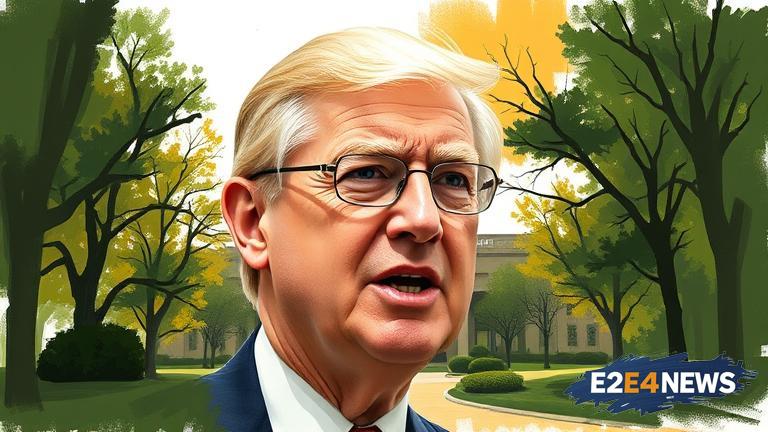The president of George Mason University, Gregory Washington, has refused to apologize to the US Education Department for the university’s handling of a controversy surrounding a gift from a conservative donor. The Education Department had requested that the university apologize for its actions, which it deemed to be in violation of federal regulations. However, Washington has stated that the university has done nothing wrong and will not be apologizing. The controversy surrounds a $20 million gift from the Charles Koch Foundation, which was given to the university’s law school. The gift was intended to support the study of libertarian law, but some critics have argued that it was an attempt to influence the university’s curriculum and hiring practices. The Education Department had launched an investigation into the matter, but Washington has maintained that the university has followed all relevant regulations and laws. The university has stated that it will continue to defend its actions and will not be intimidated by the Education Department’s requests. The controversy has sparked a wider debate about the role of private donors in higher education and the potential for influence over academic programs. Some have argued that the gift is an example of the increasing influence of conservative donors on university campuses, while others have defended the gift as a legitimate form of philanthropy. The Charles Koch Foundation has been a major donor to several universities in recent years, and its gifts have been the subject of controversy at several institutions. The foundation has been accused of attempting to influence academic programs and hiring practices, but it has maintained that its gifts are intended to support academic freedom and the study of libertarian ideas. The controversy at George Mason University is just one example of the ongoing debate about the role of private donors in higher education. As universities continue to rely on private funding to support their programs, the potential for influence and controversy will only continue to grow. The Education Department’s investigation into the matter is ongoing, and it is unclear what further actions the department may take. However, Washington’s refusal to apologize has sparked a wider debate about the role of universities in defending academic freedom and the potential for government overreach. The controversy has also raised questions about the transparency and accountability of university fundraising practices, and the need for clearer regulations and guidelines. The university has maintained that it has followed all relevant laws and regulations, but some critics have argued that the gift was not properly disclosed and that the university has not been transparent about its dealings with the Charles Koch Foundation. The controversy is likely to continue to be a major issue in the coming months, as the Education Department’s investigation continues and the university defends its actions. The debate about the role of private donors in higher education is a complex and multifaceted one, and it is likely to continue to be a major issue in the coming years. As universities continue to rely on private funding, the potential for controversy and debate will only continue to grow. The importance of transparency and accountability in university fundraising practices cannot be overstated, and it is likely that the controversy at George Mason University will lead to calls for greater regulation and oversight. The university’s refusal to apologize has sparked a wider debate about the role of universities in defending academic freedom, and the potential for government overreach. The controversy has also raised questions about the influence of conservative donors on university campuses, and the potential for private donors to shape academic programs and hiring practices. The Charles Koch Foundation has been a major player in the controversy, and its gifts have been the subject of debate at several universities. The foundation has maintained that its gifts are intended to support academic freedom and the study of libertarian ideas, but some critics have argued that the gifts are an attempt to influence academic programs and hiring practices. The controversy at George Mason University is just one example of the ongoing debate about the role of private donors in higher education, and it is likely to continue to be a major issue in the coming months and years.
